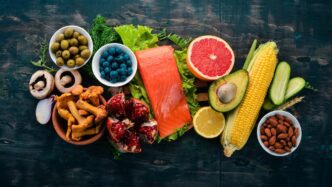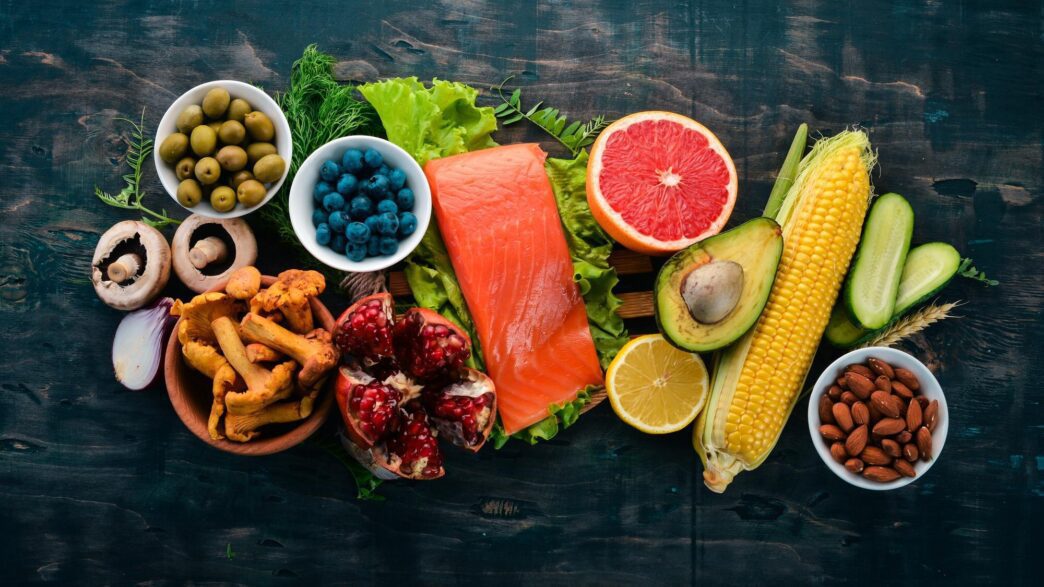A Quick Takeaway
The Story Behind the Trend
How to Make It Work for You
The Community View
Zinc is an essential trace mineral vital for countless bodily functions, playing a particularly critical role in maintaining a robust immune system. Incorporating a variety of zinc-rich foods into your daily diet is a proactive and delicious way to ensure your body has the resources it needs to defend against illness, support wound healing, and facilitate proper growth and development. From shellfish to legumes, understanding which foods are top sources empowers you to make informed choices for optimal health and resilience.
Understanding Zinc’s Role in Immunity
Zinc is far more than just another mineral; it’s a powerhouse nutrient directly involved in immune cell development and function. It acts as a cofactor for over 300 enzymes, many of which are crucial for cellular metabolism and repair. Without adequate zinc, the immune system can become compromised, making the body more susceptible to infections.
This mineral supports the growth and function of various immune cells, including T-cells and natural killer cells, which are frontline defenders against pathogens. It also helps reduce oxidative stress, which can damage cells and weaken immune responses. Ensuring sufficient zinc intake is therefore foundational for a strong, responsive immune system.
The Daily Zinc Requirement
The recommended dietary allowance (RDA) for zinc varies by age, gender, and life stage. Adult men typically need around 11 milligrams (mg) per day, while adult women require about 8 mg. Pregnant and lactating women have higher needs, usually around 11-12 mg daily. These recommendations can generally be met through a balanced diet rich in diverse whole foods.
Unlock These Top 10 Zinc-Rich Foods
Building an immune-supporting diet is straightforward once you know which foods pack a zinc punch. Here are some of the best sources to integrate into your meals.
1. Oysters
Oysters are by far the most concentrated source of zinc, offering a staggering amount in a single serving. Just three ounces of cooked oysters can provide over 30 mg of zinc, significantly exceeding the daily recommended intake. They are also rich in other essential nutrients like vitamin B12 and selenium, further boosting their health credentials.
2. Red Meat (Beef, Lamb)
Red meats like beef and lamb are excellent sources of highly bioavailable zinc, meaning the body can absorb it easily. A 3.5-ounce serving of cooked ground beef provides approximately 7 mg of zinc. These meats also supply protein, iron, and B vitamins, making them a nutrient-dense addition to the diet.
3. Poultry (Chicken, Turkey)
Chicken and turkey, particularly dark meat, contribute significantly to zinc intake. A 3.5-ounce serving of cooked chicken can offer around 2.4 mg of zinc. They are lean protein sources that can be incorporated into a wide range of meals, from stir-fries to salads.
4. Legumes (Lentils, Chickpeas, Beans)
For those following plant-based diets, legumes are a crucial source of zinc. Lentils, chickpeas, and various beans (like black beans and kidney beans) provide a good amount of this mineral, though plant-based zinc is less bioavailable due to phytates. Soaking and sprouting legumes can help improve zinc absorption.
5. Seeds (Pumpkin, Hemp, Sesame)
Seeds are tiny nutritional powerhouses, and many are rich in zinc. Pumpkin seeds are particularly noteworthy, with about 2.2 mg of zinc per ounce. Hemp seeds and sesame seeds also offer good amounts. Sprinkle them over salads, yogurt, or blend them into smoothies for an easy zinc boost.
6. Nuts (Cashews, Almonds)
Nuts provide a convenient and tasty way to increase zinc intake. Cashews are an excellent source, offering about 1.6 mg of zinc per ounce. Almonds and peanuts also contribute valuable amounts. They make for a great snack or an addition to oatmeal and baked goods.
7. Dairy (Milk, Yogurt, Cheese)
Dairy products like milk, yogurt, and cheese are good sources of zinc, alongside calcium and vitamin D. A cup of milk typically contains about 1 mg of zinc, and cheese offers varying amounts depending on the type. These can be easily incorporated into daily meals and snacks.
8. Eggs
Eggs are a versatile and affordable source of many nutrients, including zinc. One large egg provides about 0.6 mg of zinc, along with high-quality protein, choline, and other essential vitamins and minerals. They are a perfect breakfast item or a quick addition to any meal.
9. Whole Grains (Oats, Quinoa, Brown Rice)
While whole grains contain phytates that can slightly inhibit zinc absorption, they still provide valuable amounts of the mineral. Oats, quinoa, and brown rice are good options, also offering fiber and various B vitamins. Choosing whole grains over refined grains is always a healthier choice.
10. Dark Chocolate
As a pleasant surprise, dark chocolate, especially varieties with 70% cocoa or higher, contains a decent amount of zinc. A 3.5-ounce bar can provide around 3.3 mg. While delicious, it should be consumed in moderation due to its calorie and sugar content. It also offers antioxidants, adding to its health benefits.
Optimizing Zinc Absorption
To maximize zinc absorption from your diet, consider pairing plant-based zinc sources with animal proteins, which can enhance bioavailability. Avoid consuming large amounts of coffee or tea with zinc-rich meals, as tannins can inhibit absorption. Soaking and sprouting legumes and grains can also reduce phytate content, improving nutrient uptake.
A Note on Supplementation
While food is always the preferred source for nutrients, some individuals may require zinc supplementation under medical guidance. However, excessive zinc intake can be detrimental, leading to copper deficiency and other issues. Always consult a healthcare professional before starting any new supplement regimen to ensure it’s appropriate for your individual needs.
Prioritizing a diverse diet rich in these zinc-packed foods is a delicious and effective strategy for supporting your immune system and overall health. By making conscious choices about what you eat, you can empower your body to maintain its defenses and thrive.







